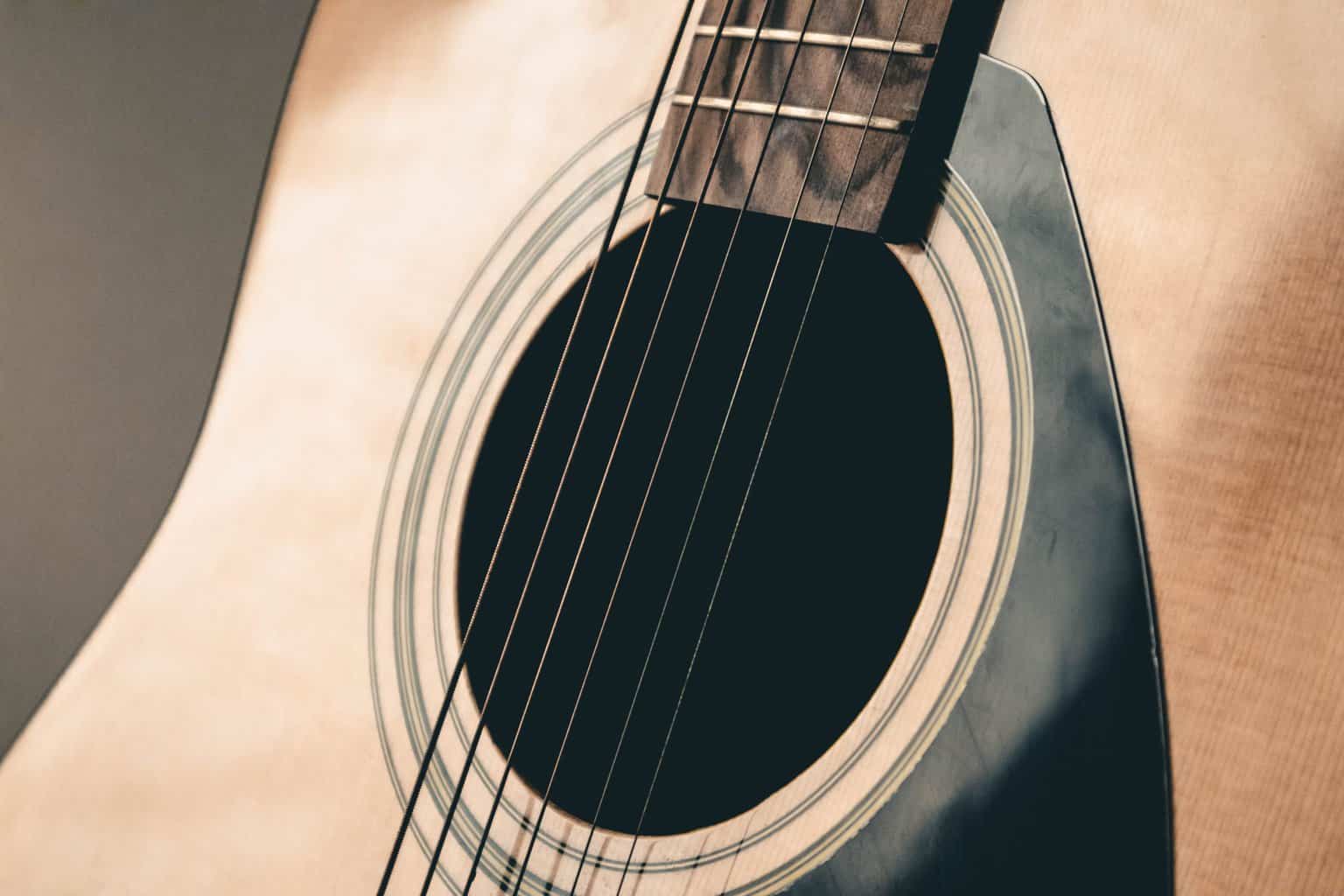What could we do without our strings?
Nothing! That’s for sure.
After all, we can play electric guitars without cables, picks, or amplifiers.
But without strings? Good luck with that.
Therefore, one always has to ensure the guitar strings are properly taken care of.
For this, you can clean them with a dry cloth and a string cleaner, and change them every now and then.
Do that, and you will never find yourself playing rusted strings.
However, there is something that oughts to be considered.
What would happen if you leave your strings on a guitar that you don’t play with?
In other words, would guitar strings wear out when unused?
Strings do wear out when unused. The main cause of it is humidity, although finger grease that hasn’t been cleaned out corrodes the strings as well. To ensure a longer lifespan, guitars must be stored in dry places or in quality cases.
To understand more about the reasons why keep reading!
Here you’ll learn how to recognize worn-out strings, what to do to avoid such issues, and more!
Do guitar strings wear out even if you don’t play?
A tricky question gets a tricky answer.
Guitar strings wear out when they are not being played with.
However, they deteriorate because of specific reasons. Not merely because they are not being used.
Weather, for instance, is a relevant factor in this situation.
Let’s dig deeper into this topic to find out the exact reasons behind worn-out strings.
How long will unplayed guitar strings on a guitar last as new?
Unplayed guitar strings take a long time before they wear out.
I’m talking about months. Generally, between six and nine months of inactivity.
Some dare to say they last even less amount of time: Three months, approximately.
Numbers vary, of course.
They depend on factors such as climate, or the place where the instrument’s stored.
If, for instance, you guard your guitar in a quality case, then strings could last even a year.
What causes guitar strings to deteriorate with time?
Now, time to analyze the exact reasons why strings wear out.
- Finger grease/corrosion: washing your hands shouldn’t be done prior to eating solely. When we talk about grease, we refer to a combination of dust, sweat, and dirt. This, in the long run, corrodes your strings. You shouldn’t worry if the strings are of nylon because such material cannot corrode. However, if they are made of metal, then watch out.
- String fatigue: this phenomenon occurs when one winds the strings incorrectly around the tuning posts.
- Weather: hot weather loosens the strings. Wet weather and humidity weaken the strings since they absorb the water in the air.
- Tuning pegs: sometimes, tuning pegs have burred edges inside. Strings passing through them cause them to break.
- The nut: filth can be accumulated in the grooves and lead to breakage. Moreover, heavier gauge strings wear on the nut, which leaves behind some rough spots.
- The bridge: some saddles are too sharp and damage your strings.
- Burred Frets: a damaged fret can ruin strings every time you are fretting.
- Heavy picks: lighter picks are recommended in order to avoid worn-out strings.
How to recognize worn out strings
Detecting worn-out strings is an easy task. Simply check for any of the following signs:
- Looks: deteriorated strings look awful because they lose their luster. You’ll notice them discolored and grayish, or detect some rust spots.
- Sound: it is possible to notice deterioration thanks to sound. They create a dull and flat tone that is unpleasant to your ears.
- Touch: you can trust your fingers too. If you play worn-out strings, they’ll feel stiff instead of flexible. Stiffness is a result of corrosion. Also, worn-out strings don’t feel smooth at all.
- Tuning: worn-out strings will likely go out of tune more regularly than common ones.
Why old strings are bad?
Strings should be changed regularly. The older they get, the lesser their quality.
Therefore, old strings are discouraged.
The reasons why older strings shouldn’t be played with are many.
First of all, old strings sound dull. No matter what settings you configure your amp or guitar with, you’ll never be satisfied.
A flat tone is difficult to avoid when the strings are old, even if you have superior gear.
Also, old strings break the most. They are prone to a sooner breakage, compared to newer strings.
However, strings breaking is the least of the problems. After all, you can buy a new set of strings and change them.
The real issue is when old strings affect the guitar itself.
A rusty string can wear down your fretboard. You should beware of that, and avoid old strings at all costs.
Is there a way of preventing string decay if you’re not going to use your guitar?
Plenty of measures can be taken to prevent string decay.
We have discussed some of them, such as washing your hands.
Such tips are helpful but only apply to those who regularly play with them.
Now, let’s focus on what to do if you are not playing with those strings.
The number one tip is to store your instrument in the right place.
What’s the right place? A dry place!
Remember: humidity ruins your strings because they absorb the water in the air, which in the end leads to corrosion.
If you are unable to find a dry room in your house, then I encourage you to use a dehumidifier. They will eliminate the excess moisture in your strings.
However, an important disclaimer: Extra dry conditions can be very harmful to guitars.
Take into account that the sweet spot for your instruments is between 45% to 55% relative humidity.
Another recommended proceeding is to get either string protection or a quality case.
This drastically reduces the chances of absorbing humidity, which delays the oxidation process.
Lastly, consider cleaning out the strings before guarding the guitar for extended periods of time.
Most often than not, finger filth or sweat corrodes the strings. The next time you take your guitar out, you find rust dots and realize they are impossible to play with.
Use a dry cloth and clean them out. Now you can put the guitar away without worrying about future spoils.
Should you take off your guitar strings if you are not going to use it for a long period of time?
The answer to this question depends on what “long” periods of time mean to you.
If the guitar’s going to be stored for some weeks, then taking strings off is a futile job.
In the end, you’ll have to string them back. This is a waste of your time, since leaving them on won’t make a difference at all.
Just remember to clean the strings before storing the guitar, and always make sure it is placed in a dry room.
Otherwise, if you are planning not to play with it for months, then maybe taking strings out is a good idea. You can keep them in a bag until it is time to restring them again.
Would taking all strings off of your guitar damage it?
No real damages can occur when removing all strings at once.
If the guitar is kept with no strings for long periods of time, then the neck can become straighter.
This is not a real problem, though. It can return to its normal position once the strings are put together again.
For a more detailed explanation of this, I recommend you check this article out.
Can you put used strings back on?
Used strings cannot be a problem either.
You can take them out and put them back every time you want until their eventual break.
Of course, used strings will never sound as bright as a new set.
Once again, we have yet another article where we discuss this topic more accurately.
Read it here.
Should you really worry about strings wearing out?
Do you want to play guitar?
Great! That means you’ll have to deal with certain nuisances.
Changing strings is one of them.
Truth is, it is impossible to maintain the same set of strings forever.
They are bound to wear out, sometimes in the least convenient circumstances, such as a live performance or rehearsal.
Yet another truth, is that you couldn’t care less about it!
There is nothing you can do to prevent a string from breaking. The only thing in your control is taking proper care of them to ensure they don’t wear out before their due time.
Other than that, there’s not much left to do.
I understand that changing strings requires money, but everything has a cost.
Maintaining a guitar demands sacrifices, but they always lead to the betterment of life.

Hello there, my name is Ramiro and I’ve been playing guitar for almost 20 years. I’m obsessed with everything gear-related and I thought it might be worth sharing it. From guitars, pedals, amps, and synths to studio gear and production tips, I hope you find what I post here useful, and I’ll try my best to keep it entertaining also.





